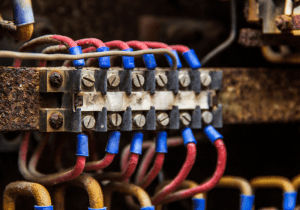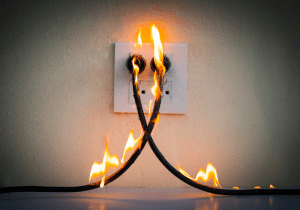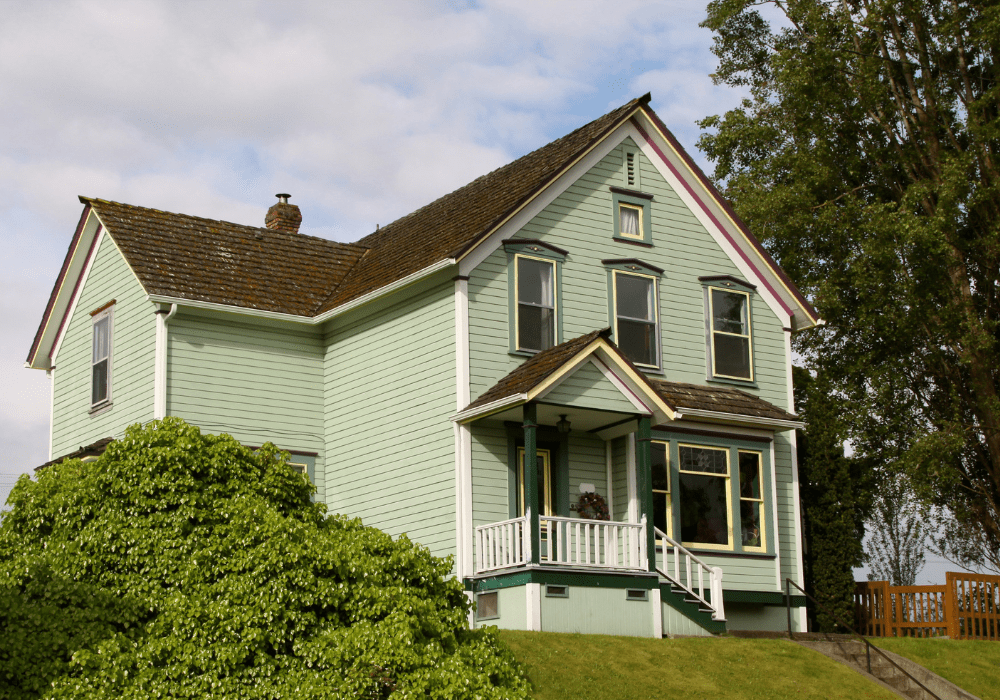Owning an older home comes with its unique charm, a sense of history, and often, architectural beauty that newer homes can’t quite replicate. However, these older homes also come with their own set of challenges, particularly when it comes to electrical hazards. Electrical systems in homes built several decades ago were not designed to handle the power demands of modern life, leading to potential hazards that can jeopardize the safety of homeowners and their families.
In this post, we’ll delve into the common electrical hazards frequently found in older homes, the risks associated with these hazards, how to detect and address them, and the benefits of modernizing your home’s electrical systems. Let’s ensure your home remains as safe as it is charming.
Identifying Common Electrical Hazards
 Outdated Wiring Systems
Outdated Wiring Systems
Older homes often have wiring systems that were installed many decades ago. These systems may include knob-and-tube wiring or aluminum wiring, both of which pose significant risks. Knob-and-tube wiring lacks grounding and can become brittle over time, while aluminum wiring can oxidize and cause connections to loosen, leading to overheating.
Lack of Ground Fault Circuit Interrupters (GFCIs)
Homes built before the 1970s typically do not come equipped with GFCIs, which are designed to protect against electrical shock by shutting off power when an imbalance is detected. Without GFCIs in key areas like kitchens, bathrooms, and outdoor spaces, the risk of electrical shock increases significantly.
Overloaded Circuits
Modern appliances and gadgets demand more power than older electrical systems were designed to supply. Overloading circuits by plugging too many devices into a single outlet can cause overheating, potentially leading to fires.
Damaged or Frayed Wires
With time, the insulation around electrical wires can degrade, leading to exposed wires that pose a risk of electrical shock or fire. Regular wear and tear, rodent damage, or improper repairs can contribute to this issue.
Old Electrical Appliances
Older appliances, though sometimes still functioning, may not meet current safety standards. They can have worn-out components that increase the risk of electrical shocks and fires.
The Dangers and Risks
 Fires and Electrical Shocks
Fires and Electrical Shocks
Electrical fires account for a significant number of house fires each year. Outdated wiring, overloaded circuits, and other electrical issues are the primary culprits. Moreover, electrical shocks from faulty wiring can cause serious injuries or even be fatal.
Health Hazards from Poor Wiring
Faulty electrical systems can create a range of health hazards. For example, burns from electrical shocks or fires, respiratory problems from smoke inhalation, and long-term exposure to electrical stress can affect your well-being.
Financial and Insurance Implications
Electrical hazards not only pose safety risks but can also have financial ramifications. Damage from electrical fires can lead to costly repairs, and some insurance policies may not cover homes with outdated electrical systems. Upgrading your electrical system can also potentially lower your insurance premiums.
How to Detect and Address Electrical Hazards
Signs to Look Out For
- Frequent Circuit Breaker Trips: This could indicate an overloaded circuit or other underlying issues.
- Flickering or Dimming Lights: Could signal a problem with the wiring.
- Burning Smell or Discolored Outlets: A sign of overheating or burning wires.
- Warm or Sparking Outlets: Indicates an immediate need for inspection and repair.
- Buzzing Sounds: Often a result of loose or faulty wiring.
The Importance of Professional Inspections
Professional inspections by licensed electricians are crucial for identifying and addressing electrical hazards. They can provide a comprehensive assessment of your home’s wiring and recommend necessary upgrades.
DIY Solutions for Minor Issues
- Replace Damaged Cords: If you notice a frayed or damaged power cord, replace it immediately.
- Install Outlet Covers: To prevent dust accumulation and protect children from shocks.
- Use Power Strips with Surge Protectors: Avoid overloading outlets by using power strips with built-in surge protection.
Upgrading and Future-proofing Your Home
The Benefits of Modern Electrical Systems
Upgrading to a modern electrical system comes with numerous benefits, including enhanced safety, improved energy efficiency, and increased home value. Modern systems are equipped to handle the demands of today’s technology and offer better protection against electrical hazards.
Available Upgrades for Older Homes
- Upgrade to Circuit Breaker Panels: Replace old fuse boxes with modern circuit breaker panels for better safety and functionality.
- Install GFCIs and AFCIs: Install ground fault circuit interrupters (GFCIs) and arc fault circuit interrupters (AFCIs) to prevent shocks and fires.
- Rewire with Copper Wiring: Replace outdated wiring with copper, which is more durable and safer.
- Enhance Lighting and Outlet Capacity: Add more outlets and lighting to accommodate modern living needs.
Engaging with Professional Electricians for Safe Upgrades
When it comes to major electrical upgrades, it’s essential to work with professional electricians. They have the expertise to ensure that upgrades are done safely and comply with current building codes. They can also advise on the best solutions for your specific needs and ensure that your home’s electrical system is future-proofed.
Electrical safety in older homes is a crucial concern that should not be overlooked. By understanding the common hazards, recognizing the signs of electrical issues, and taking proactive steps to address them, you can protect your home and loved ones from potential dangers.
Upgrading your home’s electrical system not only enhances safety but also brings peace of mind, knowing that your home is equipped to handle the demands of modern living. Prioritize electrical safety today and take the necessary steps to future-proof your home.
Stay safe, and don’t hesitate to reach out to a licensed electrician for professional advice and assistance.

